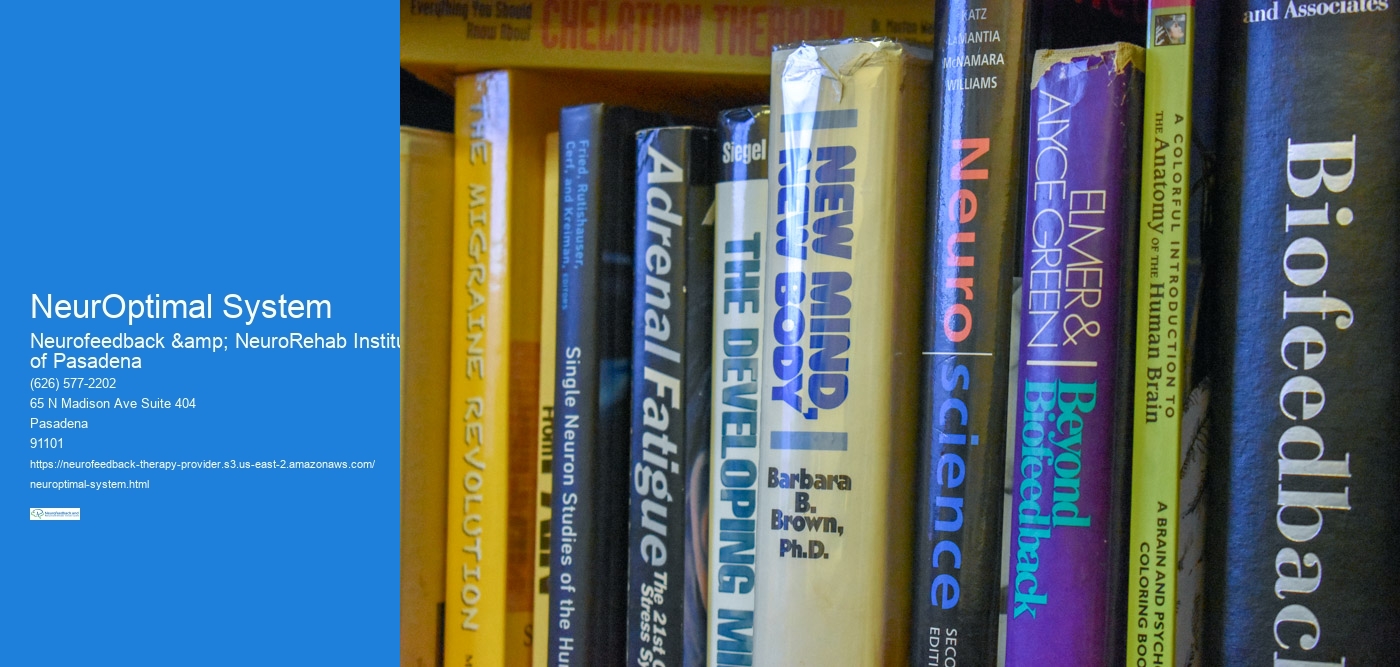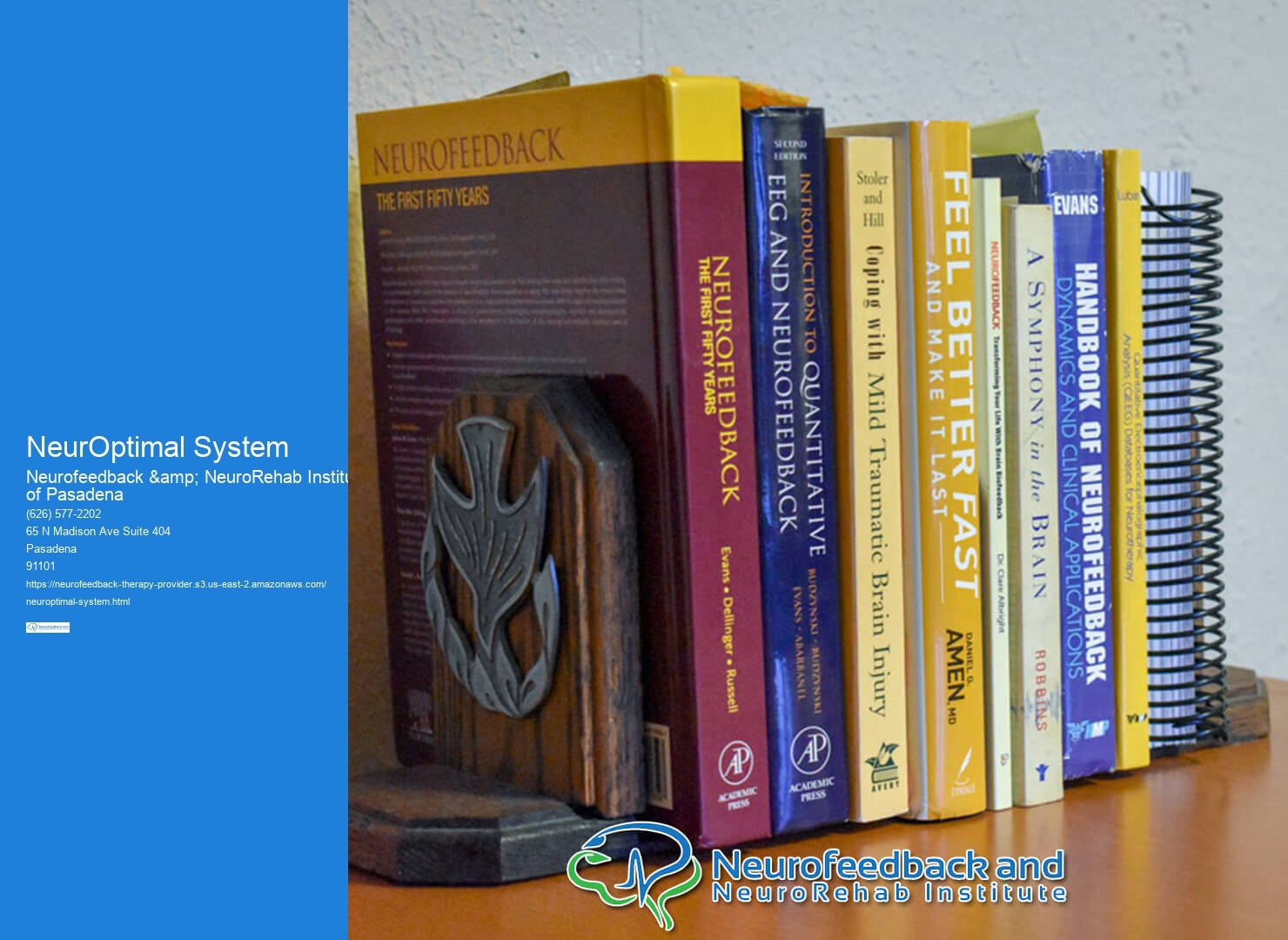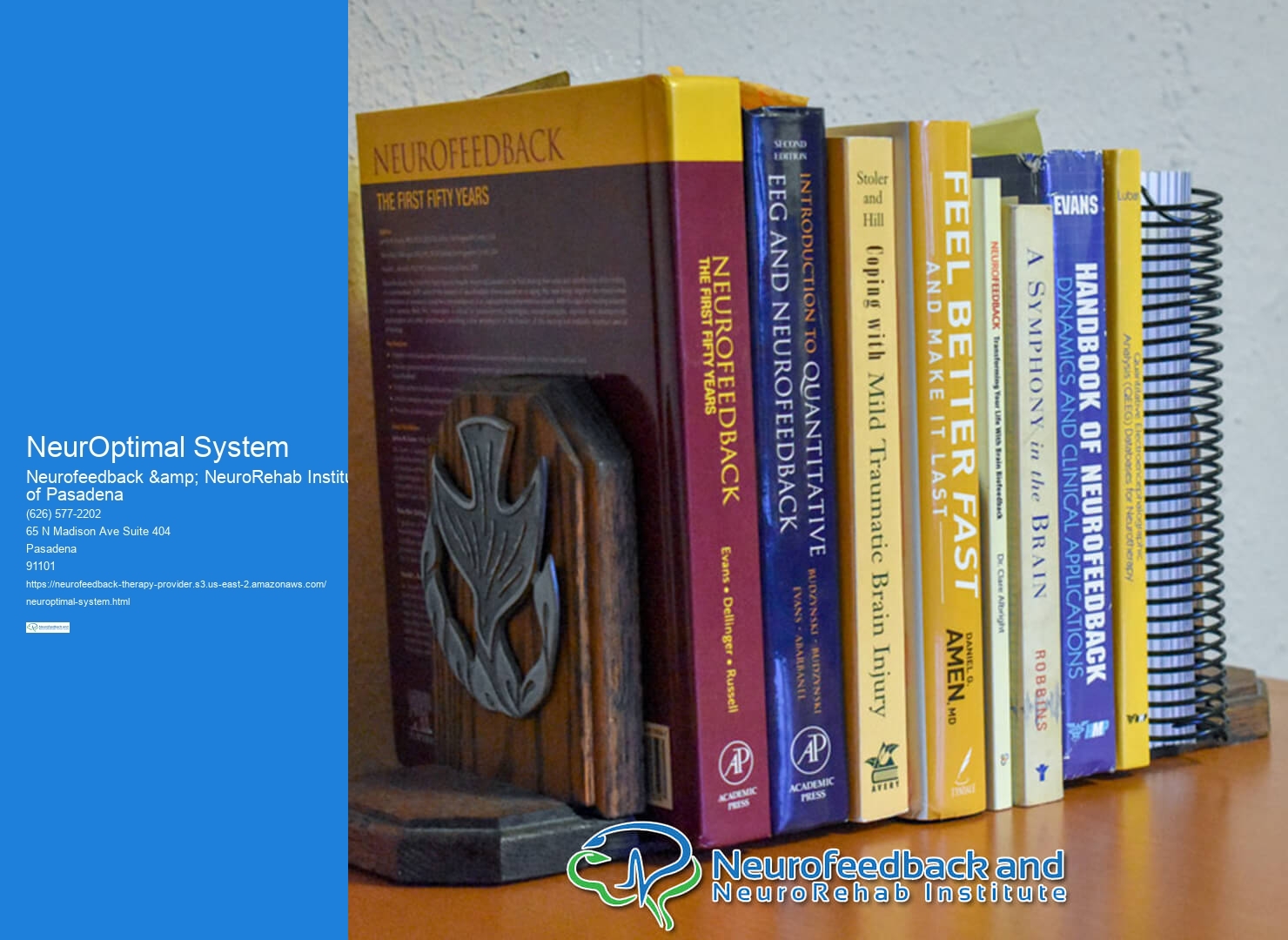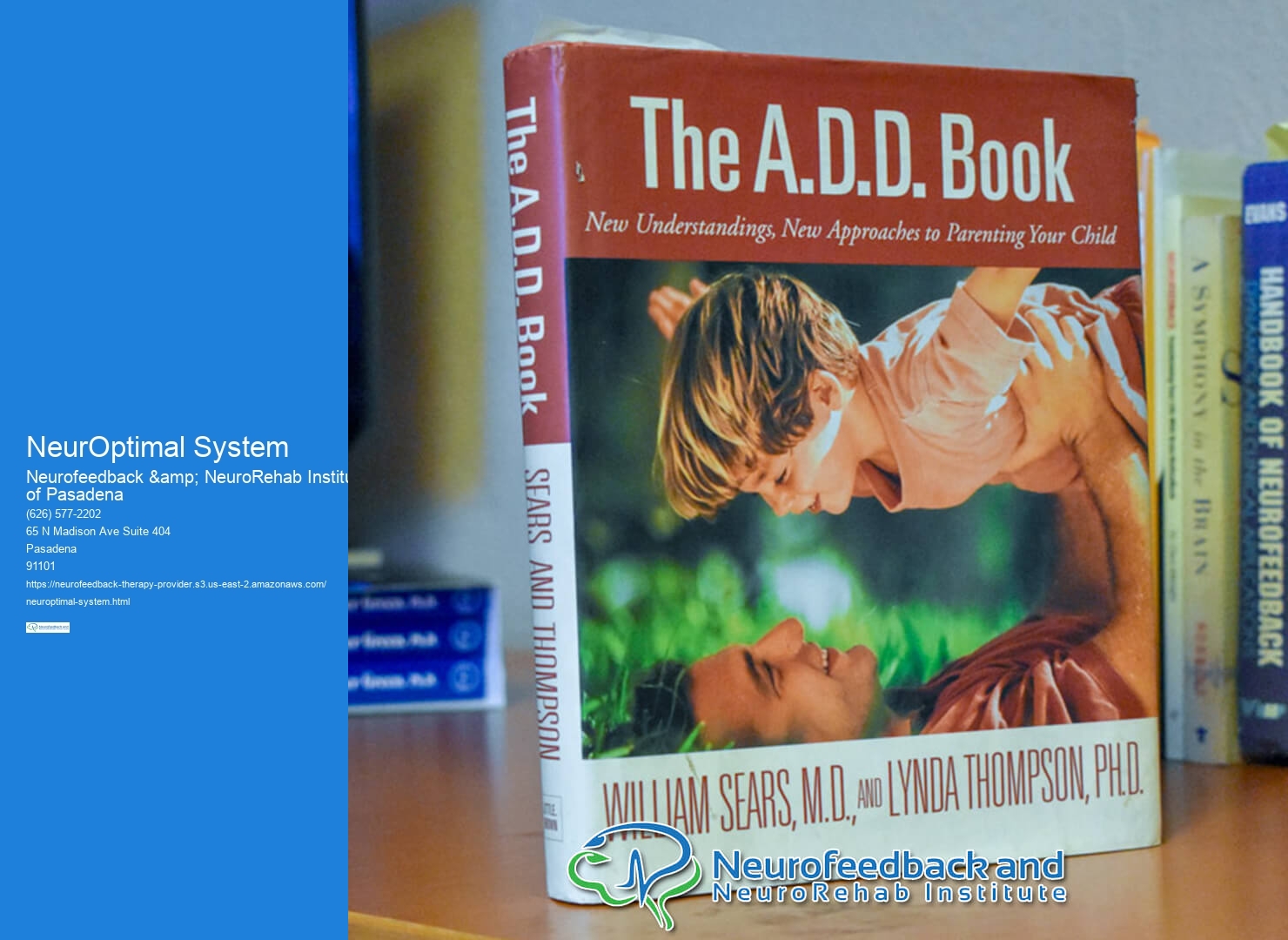

The NeurOptimal system utilizes neurofeedback by monitoring the brain's electrical activity through sensors placed on the scalp. It then provides real-time feedback to the user in the form of audio or visual cues, prompting the brain to self-regulate and optimize its functioning. Neurofeedback Training Specialist This non-invasive approach aims to improve brain function by promoting self-awareness and self-regulation of neural activity, ultimately leading to enhanced cognitive performance and emotional well-being.
The NeurOptimal system does not specifically target specific neural pathways. Instead, it operates on the principle of dynamical neurofeedback, which focuses on the overall brain function rather than specific neural pathways. By providing real-time feedback based on the brain's own activity patterns, the system encourages the brain to self-optimize its functioning across various neural pathways, leading to holistic improvements in cognitive and emotional processes.
Brainwave Therapy PractitionerThe NeurOptimal system can be customized to address individual cognitive challenges by tailoring the neurofeedback training sessions to the specific needs and goals of the user. Brain Training Therapist Through personalized assessment and consultation, the system can be adapted to target areas of concern such as attention, stress management, sleep quality, or overall mental acuity. This customization allows for a more targeted and effective approach to addressing individual cognitive challenges.

The NeurOptimal system differs from traditional neurofeedback methods in several ways. Unlike traditional neurofeedback, which often targets specific brainwave frequencies or neural pathways, NeurOptimal operates on a non-linear dynamical approach, providing feedback based on the brain's own activity patterns without explicitly targeting specific neural pathways. This approach is designed to promote overall brain flexibility and resilience, rather than focusing on specific areas of the brain.
Neurofeedback Session ProviderScientific evidence supports the effectiveness of the NeurOptimal system in enhancing mental acuity. Research studies have demonstrated improvements in cognitive function, attention, and emotional regulation following the use of NeurOptimal neurofeedback training. Additionally, neuroimaging studies have shown changes in brain connectivity and activity patterns associated with improved cognitive performance and emotional well-being, providing further support for the system's effectiveness.

The NeurOptimal system is generally considered safe and well-tolerated, with minimal potential side effects. Since it operates by providing feedback based on the brain's own activity patterns, it does not introduce external stimuli or manipulate neural activity directly. However, individuals with certain neurological or psychiatric conditions should consult with a healthcare professional before using the system to ensure its suitability and safety for their specific circumstances.
EEG Biofeedback CenterThe NeurOptimal system adapts to the user's brain activity in real-time through its advanced algorithm, which detects and responds to moment-to-moment changes in the brain's electrical activity. This real-time adaptation allows the system to provide feedback that is tailored to the user's current brain state, promoting self-regulation and optimization of brain function. By dynamically adjusting the feedback based on the user's neural activity, the system aims to maximize its impact on cognitive performance and emotional well-being.

Neurofeedback, also known as EEG biofeedback, is a non-invasive therapeutic technique that aims to improve brain function by providing real-time feedback on brainwave activity. Research suggests that neurofeedback may be a promising intervention for individuals with multiple sclerosis (MS), a chronic autoimmune disease affecting the central nervous system. Studies have shown that neurofeedback training can help improve cognitive function, attention, and overall quality of life in individuals with MS. By targeting specific brainwave patterns, neurofeedback may help alleviate symptoms such as fatigue, cognitive impairment, and mood disturbances commonly associated with MS. However, it is important for individuals with MS to consult with their healthcare provider to determine if neurofeedback is a suitable complementary therapy for their specific needs and medical history.
Neurofeedback has shown promise in cognitive enhancement for seniors by targeting specific brainwave patterns associated with memory, attention, and executive function. By utilizing neurofeedback training, seniors may experience improvements in cognitive abilities, such as working memory, processing speed, and overall mental acuity. This non-invasive technique involves real-time monitoring of brain activity and providing feedback to help individuals learn to self-regulate their brain function. Research suggests that neurofeedback may contribute to enhanced cognitive performance, neuroplasticity, and overall brain health in the aging population. Additionally, the use of neurofeedback in seniors may also support emotional well-being, sleep quality, and overall quality of life.
Neurofeedback, also known as EEG biofeedback, is a non-invasive technique that aims to improve brainwave coherence by providing real-time feedback on brainwave activity. Through the use of specialized equipment, individuals are able to observe and regulate their brainwave patterns, promoting greater synchronization and coherence among different brain regions. This process involves the modulation of specific frequency bands, such as alpha, beta, theta, and delta waves, to enhance overall brainwave coherence. By targeting and training specific brainwave patterns, neurofeedback can help individuals achieve a more balanced and harmonious brainwave activity, leading to potential improvements in cognitive function, emotional regulation, and overall well-being.
Neurofeedback has shown promise in aiding substance abuse recovery by targeting the brain's neural pathways associated with addiction. Research suggests that neurofeedback can help individuals regulate their emotions, reduce cravings, and improve impulse control, all of which are crucial in overcoming substance abuse. By utilizing neurofeedback, individuals can learn to self-regulate their brain activity, leading to improved cognitive function and emotional stability. This non-invasive technique has been found to be effective in addressing the underlying neurological imbalances that contribute to substance abuse, offering a holistic approach to recovery. Additionally, neurofeedback can complement traditional therapies, such as counseling and medication, to enhance the overall treatment outcomes for individuals seeking recovery from substance abuse.
Yes, neurofeedback has been found to be effective in improving sleep quality. By utilizing neurofeedback training, individuals can learn to regulate their brainwave patterns, which can lead to better sleep patterns and overall improved sleep quality. Neurofeedback can help individuals address issues such as insomnia, restless sleep, and difficulty falling asleep. By targeting specific brainwave frequencies and training the brain to achieve a more balanced and relaxed state, neurofeedback can contribute to better sleep hygiene and overall well-being. Additionally, neurofeedback can help individuals manage stress, anxiety, and other factors that may be impacting their sleep, leading to a more restful and rejuvenating sleep experience.